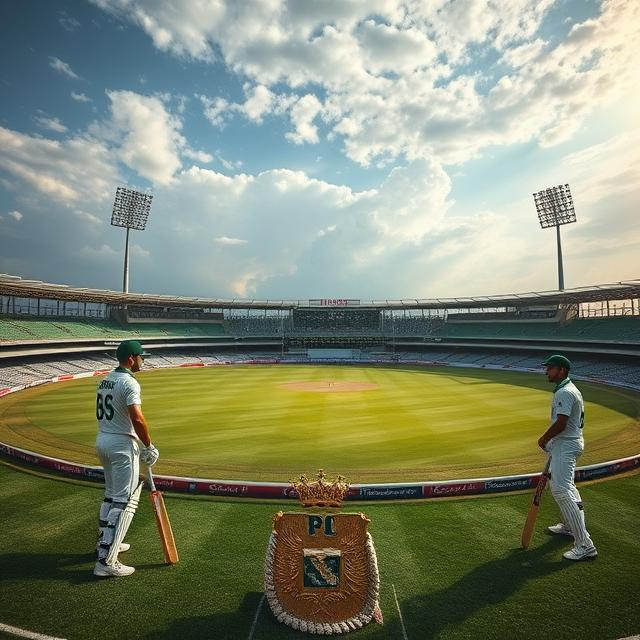ICC Cricket World Cup Conspired Against Pakistan? Examining the Allegations

ICC Cricket World Cup Conspired Against Pakistan? Examining the Allegations
The 2023 Cricket World Cup concluded with a thrilling final, yet a shadow of suspicion lingered over the tournament. Allegations of a conspiracy against Pakistan, a powerhouse in international cricket, have resurfaced, stirring debate and raising critical questions about fairness and impartiality within the sport. This article delves into the accusations, examining the evidence, and considering the wider context of international cricket.
Unveiling the Allegations: The whispers started subtly, gaining momentum after Pakistan’s under-performance in several crucial matches. Many claim that Pakistan, a team often lauded for its strategic brilliance and powerful batting line-up, was subjected to unfair officiating or unfavourable match scheduling. Crucially, a significant portion of these claims stem from a perceived pattern of questionable decisions. Supporters of the allegations point to a series of events, including umpiring calls, boundary decisions, and even the timing of rain interruptions, as being suggestive of a coordinated effort to disadvantage the Pakistani team.
Examining the Evidence: Pinpointing concrete evidence supporting a conspiracy theory is exceedingly difficult, especially in high-pressure sporting environments. Supporters of the Pakistan conspiracy theory primarily rely on anecdotal evidence, social media posts, and discussions among fans. While these accounts can be compelling, they do not constitute definitive proof of wrongdoing. A crucial point to remember is that interpretations of events can vary greatly depending on perspective and bias. The alleged conspiracy hinges heavily on subjective interpretations rather than verifiable facts.
Analyzing the Impartiality of Umpires: The role of umpires is paramount in cricket’s integrity. Any suggestion of bias from the officiating body calls into question the legitimacy of the entire tournament. A crucial element in evaluating this claim involves examining the performance of umpires across all matches, scrutinizing any instances of controversy or debatable decisions. Moreover, the transparency in the selection process of match officials, their training, and potential conflict of interest statements warrants thorough investigation.
Considering the Wider Context of International Cricket: The perception of fairness and impartiality in international cricket is paramount. Instances of alleged wrongdoing, even if unsubstantiated, can erode public trust in the game. Pakistan is a historically significant team with a passionate fan base, and any perceived injustice can have a long-lasting impact on their morale and the perception of fair play in the game.
Looking Beyond the Specific Accusations: The allegations regarding the conspiracy against Pakistan during the World Cup aren’t isolated incidents. Similar claims of biased officiating and unfavorable conditions have emerged in other international sporting events. This raises a fundamental question: How can we ensure the integrity of these tournaments and maintain public trust in the fairness of the results?
The Role of Media and Social Media: In the modern era, social media plays a crucial role in disseminating information, often leading to widespread discussions about events, in real time. However, this also presents a danger. The rapid spread of information can also facilitate the proliferation of inaccurate or misleading narratives, contributing to public discourse that amplifies unfounded suspicions.
The Importance of Independent Investigations: The allegations concerning the conspiracy require a thorough, independent, and transparent investigation. This investigation should scrutinize all aspects of the World Cup, including umpiring decisions, match scheduling, and potential conflicts of interest. Such a process must ensure an objective assessment of the situation and maintain complete impartiality in its findings.
Conclusion: A Call for Transparency: The allegations leveled against the ICC Cricket World Cup and, specifically, the perceived conspiracy against Pakistan, deserve serious consideration. While concrete evidence supporting the claims remains elusive, the persistent nature of these allegations raises serious concerns about the fairness and integrity of the tournament. To restore public trust and maintain the prestige of international cricket, transparent processes and meticulous investigations are essential. Any future tournaments should be rigorously evaluated, utilizing improved technology and processes to mitigate bias and enhance the perception of impartial play.
The Way Forward: Strengthening Transparency: Ultimately, rebuilding faith in the integrity of sports like cricket requires a holistic approach. The ICC should establish clear protocols, enhance transparency in decision-making processes, and provide mechanisms for impartial review of disputes. Robust systems for handling complaints and fostering an environment of openness are crucial. The need for independent bodies to oversee tournaments and monitor the performance of officials needs to be explored in greater depth.
The Need for Fact-Based Analysis: Instead of relying on speculative narratives, a more rigorous approach focused on verifiable data and factual analysis is critical. This includes maintaining detailed records of events, decisions, and circumstances surrounding matches, enabling a more comprehensive evaluation should the need arise.
The Role of Fan Engagement: While social media can amplify concerns, fans should exercise greater discernment in evaluating the information they encounter. Critically assessing the sources of information, seeking multiple perspectives, and considering the context of situations are key elements in avoiding the spread of misinformation and speculation.
Looking Ahead: A Pledge to Fairness: The 2023 Cricket World Cup has ignited a crucial discussion about the importance of integrity and fairness in sports. The allegations of conspiracy, whether founded or unfounded, should prompt a thorough examination of processes and procedures to prevent future instances of suspicion and maintain the reputation of cricket as a fair and equitable sport.
The path to a future where cricket remains a globally respected sport lies in unwavering adherence to principles of fairness, transparency, and accountability. Only through such actions can we restore public trust in the integrity of the game. This article does not attempt to definitively prove or disprove the conspiracy theory, but aims to encourage a broader discussion and highlight the critical need for a more transparent system within international cricket.